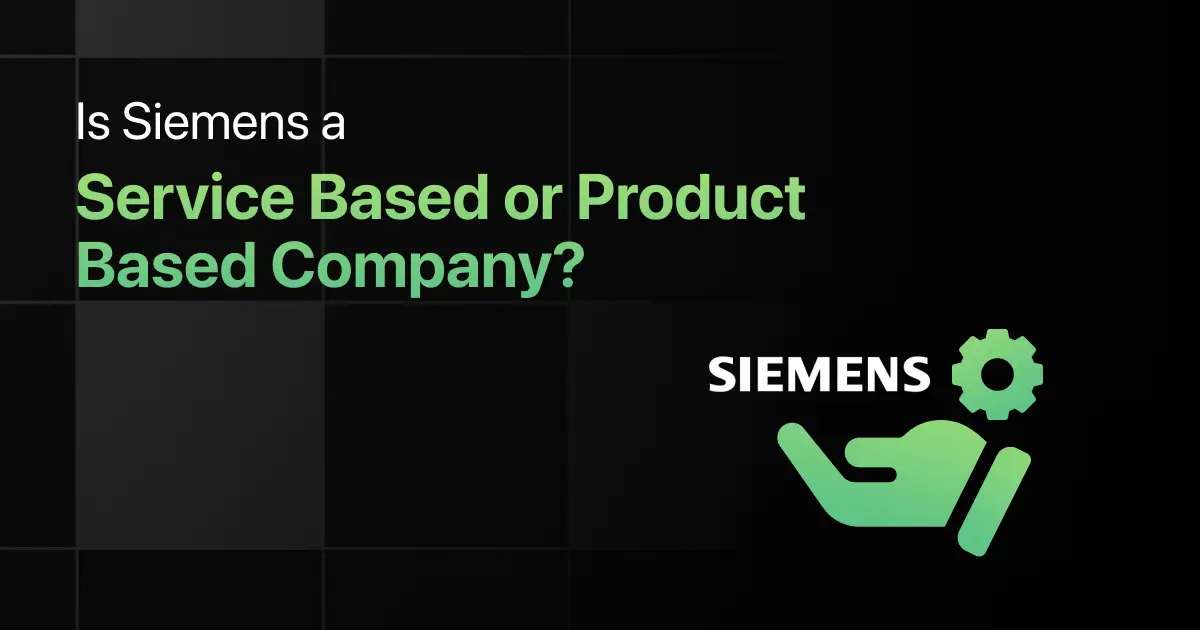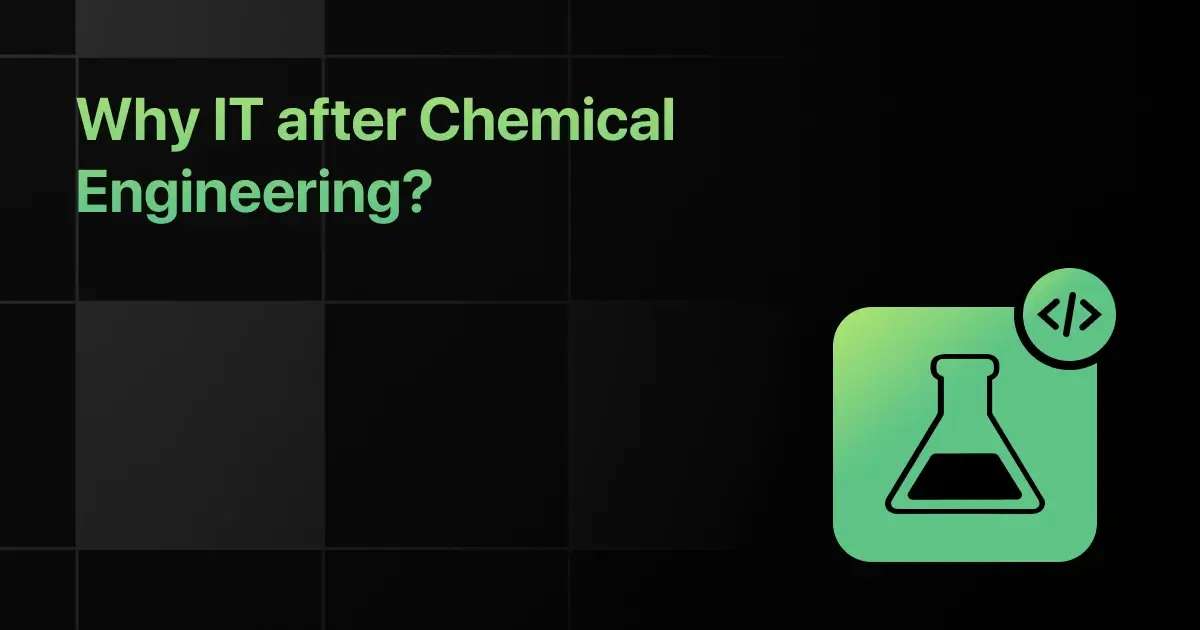Is Siemens a Service Based or Product Based Company?

Have you ever wondered what really drives Siemens – is it their innovative products or their outstanding services? Founded in 1847, Siemens has been a notable player in the fields of industry, energy, healthcare, and infrastructure. Today, we delve into the core of Siemens’ operations to uncover its true essence: Is it a service-based or a product-based company?
Understanding Siemens: Is it a Service Based or Product Based Company?
| Criteria | Service Based Company | Product Based Company | Based on the Definition |
|---|---|---|---|
| Revenue Model | Primary revenue from providing services | Primary revenue from selling products | Siemens is a Product based company |
| Client Interaction | Ongoing interaction with clients | Transactional interaction with clients | Siemens is both a Service and Product based company |
| Nature of Deliverables | Delivers intangible services | Delivers tangible products | Siemens is both a Service and Product based company |
| Innovation Focus | Innovations aimed at service improvement | Innovations focused on product development | Siemens is both a Service and Product based company |
| Marketing Strategy | Service endorsements and client testimonials | Product advertisements and showcases | Siemens is both a Service and Product based company |
| Team Structure | Diverse skill sets for comprehensive service delivery | Specialized teams for product development | Siemens is both a Service and Product based company |
| Supply Chain Management | Importance on vendor management and partnerships | Focus on manufacturing, inventory, and distribution | Siemens is both a Service and Product based company |
| R&D Focus | Process and service delivery innovation | New product development and technology advancement | Siemens is both a Service and Product based company |
| Customer Base | Varied clientele requiring customized solutions | Broader, more uniform customer base | Siemens is both a Service and Product based company |
| Capital Investment | Investment in human capital and technology | Investment in manufacturing facilities and equipment | Siemens is both a Service and Product based company |
10 Reasons Why Siemens is a Service and Product Based Company
Following are the reasons why Siemens is a Service and Product based company:
1. Revenue Model
When examining Siemens’s primary source of revenue, we notice that it predominantly comes from selling products. Siemens’s vast array of industrial, healthcare, and energy products contribute significantly to its revenue, alongside the services it provides. Hence, Siemens is more of a product-based company.
2. Client Interaction
Looking at how Siemens interacts with its clients, we observe ongoing relationships, particularly in service contracts and project implementations, as well as transactional relationships in product sales. This suggests that Siemens operates as a both product and service-based company.
3. Nature of Deliverables
Siemens mainly delivers tangible products, such as medical imaging devices, automation systems, and power generation equipment, as well as intangible services, including software and consulting. This nature of deliverables points towards Siemens being both a product and service-based company.
4. Innovation Focus
The focus of Siemens’s innovations is primarily on product development in sectors like digital industries and smart infrastructure, as well as service enhancement through digital services and IoT solutions. This emphasis aligns with the characteristics of both a product and service-based company.
5. Marketing Strategy
Analyzing Siemens’s marketing strategies, we see a predominant focus on product advertisements for their technological innovations and service endorsements showcasing their value-added services. Therefore, it’s indicative that Siemens is both a product and service-based company.
6. Team Structure
Siemens’s team structure, characterized by specialized teams for product development and diverse skill sets for service delivery, reflects the operational model of both a product and service-based company.
7. Supply Chain Management
In terms of supply chain management, Siemens shows a greater emphasis on manufacturing and distribution for its product segments, as well as vendor management and partnerships for its service offerings, making it both a product and service-based company.
8. R&D Focus
The R&D efforts at Siemens are geared towards new product development in areas like electrification and automation, and process and service delivery innovation, particularly in digitalization and software solutions, suggesting that it is both a product and service-based company.
9. Customer Base
The nature of Siemens’s customer base, which is broad and uniform for specific product lines and varied and requiring customization for service solutions, indicates that Siemens operates as both a product and service-based company.
10. Capital Investment
Considering where Siemens invests its capital, with a focus on manufacturing facilities and equipment for its product lines and human capital and technology for its service innovations, it can be inferred that Siemens is both a product and service-based company.
The Bottom Line
So, after taking a closer look, it’s clear that Siemens aligns more with a combined product and service-based model. This distinction isn’t just about how they operate; it’s about the value they bring to the industry and market. Looking ahead, Siemens continues to be a dynamic force in industry, energy, healthcare, and infrastructure, constantly adapting and innovating.
Frequently Asked Questions
1. Is Siemens a service based or product based company?
Siemens is primarily a product-based company, focusing on selling products in the industry, energy, healthcare, and infrastructure domains. However, it also significantly integrates service offerings, making it a combined product and service-based company.
2. Why Siemens is both a service and product based company?
Siemens is both a service and product based company because it offers a wide array of innovative products such as medical power generation systems, industrial automation, and smart infrastructure solutions, alongside comprehensive services including maintenance, digital services, consulting, and software solutions tailored for various industries.
3. Is Siemens more of a service based or product based company?
Siemens, while offering significant services, aligns more closely with a product-based company model due to its extensive range of physical products that serve as the core of its business.
4. What type of services and products does Siemens offer to its clients?
Siemens offers a range of services and products such as advanced medical imaging devices, energy generation and distribution systems, industrial automation technology, building technologies, and digital solutions.
5. What is the revenue model of Siemens?
The revenue model of Siemens is based on selling products and providing services, with a primary focus on selling high-tech electrical and electronic products.
Explore More Companies
Related Posts

How to Answer: Why IT After Chemical Engineering?
Switching from chemical engineering to IT might feel like a big change—after years of working with reactions, processes, and materials, …






